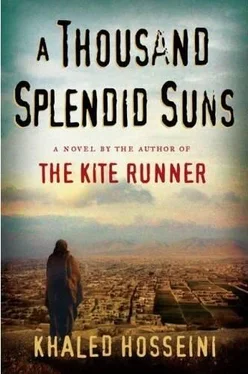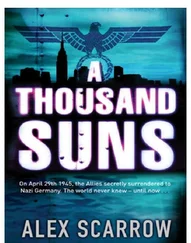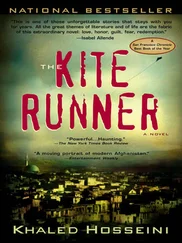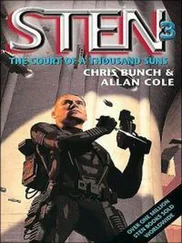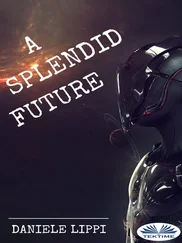Tariq nods slowly. "This is what you want, then? You're sure?"
"I want it, yes, I'm sure. But it's more than that. I feel like I have to go back. Staying here, it doesn't feel right anymore."
Tariq looks at his hands, then back up at her.
"But only – only – if you want to go too."
Tariq smiles. The furrows from his brow clear, and for a brief moment he is the old Tariq again, the Tariq who did not get headaches, who had once said that in Siberia snot turned to ice before it hit the ground. It may be her imagination, but Laila believes there are more frequent sightings of this old Tariq these clays.
"Me?" he says. "I'll follow you to the end of the world, Laila."
She pulls him close and kisses his lips. She believes she has never loved him more than at this moment. "Thank you," she says, her forehead resting against his.
"Let's go home."
"But first, I want to go to Herat," she says.
"Herat?"
Laila explains.
THE CHILDREN NEED reassuring, each in their own way. Laila has to sit down with an agitated Aziza, who still has nightmares, who'd been startled to tears the week before when someone had shot rounds into the sky at a wedding nearby. Laila has to explain to Aziza that when they return to Kabul the Taliban won't be there, that there will not be any fighting, and that she will not be sent back to the orphanage. "We'll all live together. Your father, me, Zalmai. And you, Aziza. You'll never, ever, have to be apart from me again. I promise." She smiles at her daughter. "Until the day you want to, that is. When you fall in love with some young man and want to marry him."
On the day they leave Murree, Zalmai is inconsolable. He has wrapped his arms around Alyona's neck and will not let go.
"I can't pry him off of her, Mammy," says Aziza.
"Zalmai. We can't take a goat on the bus," Laila explains again.
It isn't until Tariq kneels down beside him, until he promises Zalmai that he will buy him a goat just like Alyona in Kabul, that Zalmai reluctantly lets go.
There are tearful farewells with Sayeed as well. For good luck, he holds a Koran by the doorway for Tariq, Laila, and the children to kiss three times, then holds it high so they can pass under it. He helps Tariq load the two suitcases into the trunk of his car. It is Sayeed who drives them to the station, who stands on the curb waving good-bye as the bus sputters and pulls away.
As she leans back and watches Sayeed receding in the rear window of the bus, Laila hears the voice of doubt whispering in her head. Are they being foolish, she wonders, leaving behind the safety of Murree? Going back to the land where her parents and brothers perished, where the smoke of bombs is only now settling?
And then, from the darkened spirals of her memory, rise two lines of poetry, Babi's farewell ode to Kabul:
One could not count the moons that shimmer on her roofs,
Or the thousand splendid suns that hide behind her walls.
Laila settles back in her seat, blinking the wetness from her eyes. Kabul is waiting. Needing. This journey home is the right thing to do.
But first there is one last farewell to be said.
THE WARS IN Afghanistan have ravaged the roads connecting Kabul, Herat, and Kandahar. The easiest way to Herat now is through Mashad, in Iran. Laila and her family are there only overnight. They spend the night at a hotel, and, the next morning, they board another bus.
Mashad is a crowded, bustling city. Laila watches as parks, mosques, and chelo kebab restaurants pass by. When the bus passes the shrine to Imam Reza, the eighth Shi'a imam, Laila cranes her neck to get a better view of its glistening tiles, the minarets, the magnificent golden dome, all of it immaculately and lovingly preserved. She thinks of the Buddhas in her own country. They are grains of dust now, blowing about the Bamiyan Valley in the wind.
The bus ride to the Iranian-Afghan border takes almost ten hours. The terrain grows more desolate, more barren, as they near Afghanistan. Shortly before they cross the border into Herat, they pass an Afghan refugee camp. To Laila, it is a blur of yellow dust and black tents and scanty structures made of corrugated-steel sheets. She reaches across the seat and takes Tariq's hand.
IN HERAT, most of the streets are paved, lined with fragrant pines. There are municipal parks and libraries in reconstruction, manicured courtyards, freshly painted buildings. The traffic lights work, and, most surprisingly to Laila, electricity is steady. Laila has heard that Herat's feudal-style warlord, Ismail Khan, has helped rebuild the city with the considerable customs revenue that he collects at the Afghan-Iranian border, money that Kabul says belongs not to him but to the central government. There is both a reverential and fearful tone when the taxi driver who takes them to Muwaffaq Hotel mentions Ismail Khan's name.
The two-night stay at the Muwaffaq will cost them nearly a fifth of their savings, but the trip from Mashad has been long and wearying, and the children are exhausted. The elderly clerk at the desk tells Tariq, as he fetches the room key, that the Muwaffaq is popular with journalists and NGO workers.
"Bin Laden slept here once," he boasts.
The room has two beds, and a bathroom with running cold water. There is a painting of the poet Khaja Abdullah Ansary on the wall between the beds. From the window, Laila has a view of the busy street below, and of a park across the street with pastel-colored-brick paths cutting through thick clusters of flowers. The children, who have grown accustomed to television, are disappointed that there isn't one in the room. Soon enough, though, they are asleep. Soon enough, Tariq and Laila too have collapsed. Laila sleeps soundly in Tariq's arms, except for once in the middle of the night when she wakes from a dream she cannot remember.
THE NEXT MORNING, after a breakfast of tea with fresh bread, quince marmalade, and boiled eggs, Tariq finds her a taxi.
"Are you sure you don't want me to come along?" Tariq says. Aziza is holding his hand Zalmai isn't, but he is standing close to Tariq, leaning one shoulder on Tariq's hip.
"I'm sure."
"I worry."
"I'll be fine," Laila says. "I promise. Take the children to a market. Buy them something."
Zalmai begins to cry when the taxi pulls away, and, when Laila looks back, she sees that he is reaching for Tariq. That he is beginning to accept Tariq both eases and breaks Laila's heart.
"YOU'RE NOT FROM HERAT," the driver says.
He has dark, shoulder-length hair – a common thumbing of the nose at the departed Taliban, Laila has discovered – and some kind of scar interrupting his mustache on the left side. There is a photo taped to the windshield, on his side. It's of a young girl with pink cheeks and hair parted down the middle into twin braids.
Laila tells him that she has been in Pakistan for the last year, that she is returning to Kabul. "Deh-Mazang."
Through the windshield, she sees coppersmiths welding brass handles to jugs, saddlemakers laying out cuts of rawhide to dry in the sun.
"Have you lived here long, brother?" she asks.
"Oh, my whole life. I was born here. I've seen everything. You remember the uprising?"
Laila says she does, but he goes on.
"This was back in March 1979, about nine months before the Soviets invaded. Some angry Heratis killed a few Soviet advisers, so the Soviets sent in tanks and helicopters and pounded this place. For three days, hamshira, they fired on the city. They collapsed buildings, destroyed one of the minarets, killed thousands of people. Thousands. I lost two sisters in those three days. One of them was twelve years old." He taps the photo on his windshield. "That's her."
"I'm sorry," Laila says, marveling at how every Afghan story is marked by death and loss and unimaginable grief. And yet, she sees, people find a way to survive, to go on. Laila thinks of her own life and all that has happened to her, and she is astonished that she too has survived, that she is alive and sitting in this taxi listening to this man's story.
Читать дальше
